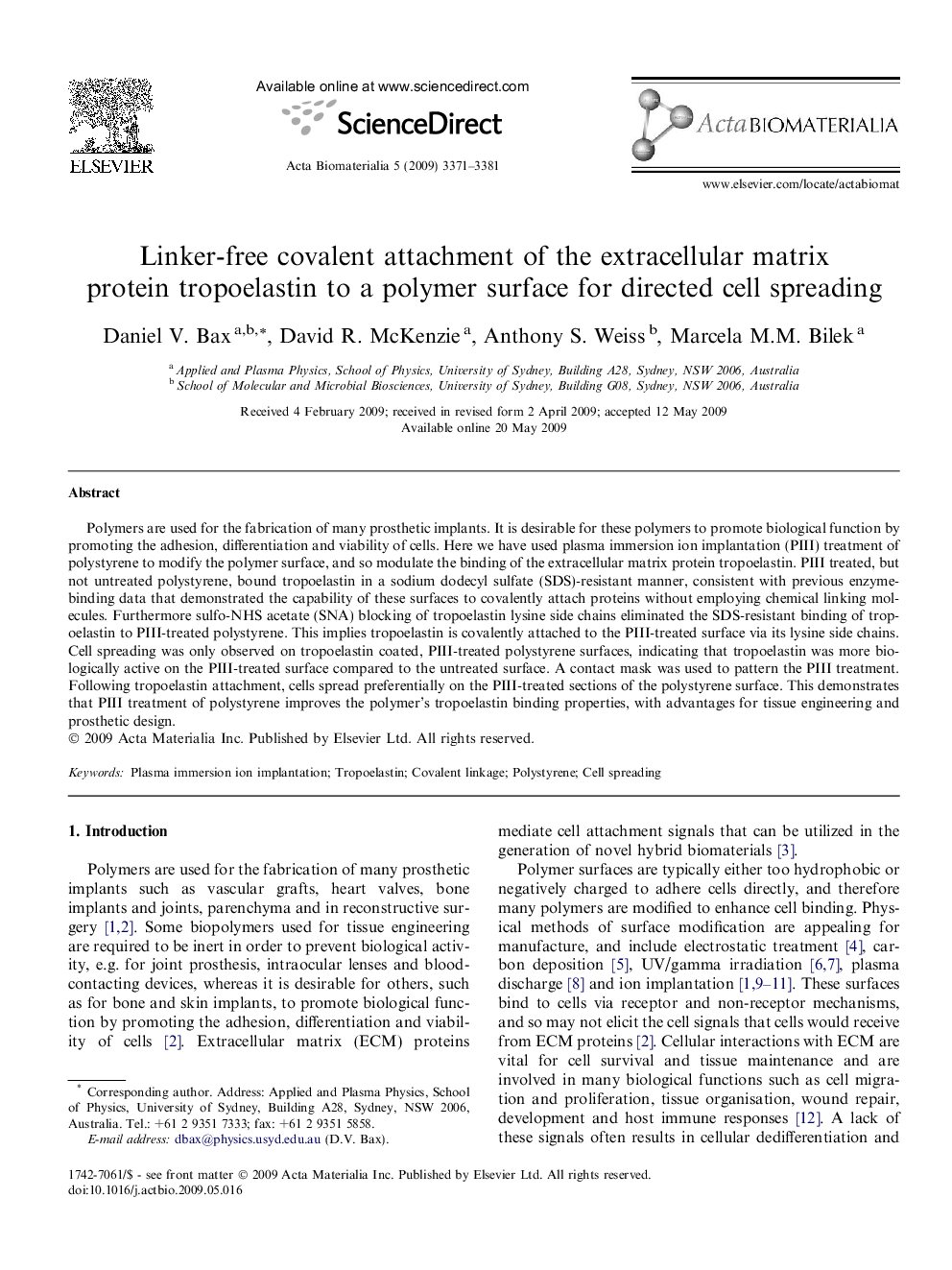| Article ID | Journal | Published Year | Pages | File Type |
|---|---|---|---|---|
| 1865 | Acta Biomaterialia | 2009 | 11 Pages |
Polymers are used for the fabrication of many prosthetic implants. It is desirable for these polymers to promote biological function by promoting the adhesion, differentiation and viability of cells. Here we have used plasma immersion ion implantation (PIII) treatment of polystyrene to modify the polymer surface, and so modulate the binding of the extracellular matrix protein tropoelastin. PIII treated, but not untreated polystyrene, bound tropoelastin in a sodium dodecyl sulfate (SDS)-resistant manner, consistent with previous enzyme-binding data that demonstrated the capability of these surfaces to covalently attach proteins without employing chemical linking molecules. Furthermore sulfo-NHS acetate (SNA) blocking of tropoelastin lysine side chains eliminated the SDS-resistant binding of tropoelastin to PIII-treated polystyrene. This implies tropoelastin is covalently attached to the PIII-treated surface via its lysine side chains. Cell spreading was only observed on tropoelastin coated, PIII-treated polystyrene surfaces, indicating that tropoelastin was more biologically active on the PIII-treated surface compared to the untreated surface. A contact mask was used to pattern the PIII treatment. Following tropoelastin attachment, cells spread preferentially on the PIII-treated sections of the polystyrene surface. This demonstrates that PIII treatment of polystyrene improves the polymer’s tropoelastin binding properties, with advantages for tissue engineering and prosthetic design.
